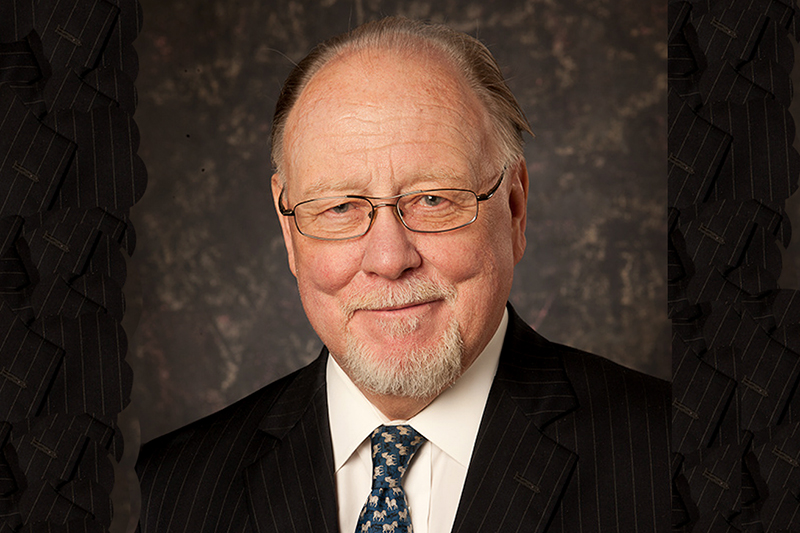Former Distinguished Professor and Chair Edward Johnson has died

Edward M. Johnson, PhD, Professor Emeritus, has died. A former Distinguished Foundation Professor in Biomedical Sciences and former Chair of Microbiology and Molecular Cell Biology at EVMS, he contributed to two Nobel Prizes and earned international acclaim for his research discoveries.
“Dr. Johnson was the consummate scientist, academician, educator, mentor, scholar and gentleman,” says Richard V. Homan, MD, President and Provost of EVMS and Dean of the School of Medicine.
As a graduate student at Yale, Dr. Johnson completed his PhD in the lab of Dr. Paul Greengard. There he worked on the communication between nerve cells helping to bring about a new understanding of protein factors that contribute to memory formation and numerous diseases including Parkinson’s, schizophrenia, depression, ADHD and substance abuse. Dr. Johnson’s research at Yale was a vital part of the work that won Dr. Greengard the Nobel Prize years later.
Dr. Johnson was the recipient of many awards including a Jane Coffin Childs Fellowship to study at The Rockefeller University and the NIH-NCI Shannon Award in 1992. Before being recruited to EVMS, he worked at some premier biomedical research universities in the New York area, including Rockefeller, Memorial Sloan-Kettering Cancer Center, Weill Cornell Graduate School of Medical Sciences, and Mount Sinai School of Medicine where he continued to make ground-breaking discoveries.
“Dr. Johnson was an outstanding and innovative scientist. His research crossed many fields from cancer biology, DNA replication to neurovirology,” says Julie Kerry, PhD, the current Chair of Microbiology and Molecular Cell Biology at EVMS. “His work was fundamental to our understanding of telomeres, which opened the way to the Nobel Prize won by Dr. Elizabeth Blackburn. Dr. Johnson discovered and structurally characterized a unique group of proteins that he named the Pur family and their importance to survival, and he identified novel associations between family member Pur-alpha and cellular DNA and proteins including a role in pathogenesis of the AIDS virus.”
His EVMS collaborator, Dianne Daniel, PhD, Associate Professor of Microbiology and Molecular Cell Biology, shares that “Over the course of his career, Dr. Johnson discovered and characterized the function of the prototype Pur protein, Pur-alpha, in cancer, neurological disease and viral replication. The international impact of his work has led to new fields of study and may provide insight into the ALS/FTD disease spectrum. Dr. Johnson patented a series of Pur-based peptides with potential for testing as therapeutics in treatment of these diseases as well as for certain cancers and viral infections.”
Dr. Johnson changed the landscape of the Microbiology and Molecular Cell Biology department through recruiting a series of outstanding investigators at EVMS. He retired from EVMS in 2016 but continued to be active in mentoring the faculty he recruited. Their success in research is yet another lasting legacy of Dr. Johnson’s. Outside of science, Dr. Johnson also had broad interests including travel, fishing — both fly-fishing and deep-sea — and he was an avid, certified practitioner of martial arts.
He is survived by his wife, Dr. Elizabeth Childs-Johnson, and son, Nathaniel.